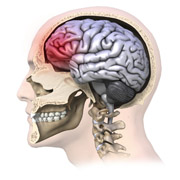Research and Innovation, UNL Office of

Center for Brain, Biology, and Behavior: Faculty Publications
ORCID IDs
R. J. R. Blair http://orcid.org/0000-0002-6377-2361
Document Type
Article
Date of this Version
4-22-2022
Citation
Child and Adolescent Psychiatry and Mental Health (2022) 16:38
https://doi.org/10.1186/s13034-022-00466-x
Abstract
Background: Previous work has examined the association of aggression levels and callous-unemotional traits with outcome expectations and values regarding the consequences of aggression. Less work has examined the outcome expectations and values regarding the consequences of aggression of adolescents with Conduct Disorder (CD). Also, no studies have examined links between irritability (a second socio-affective trait associated with CD) and these social cognitive processes despite the core function of anger in retaliatory aggression and establishing dominance.
Method: The current study, investigating these issues, involved 193 adolescents (typically developing [TD; N = 106], 87 cases with CD [N = 87]). Participants completed an adaptation of the Outcomes Expectations and Values Questionnaire and were assessed for CU traits and irritability via the Inventory of Callous-Unemotional traits and the Affective Reactivity Index.
Results: While CD was associated with atypical outcome expectations this was not seen within statistical models including CU traits and irritability. CU traits were associated with decreased expectation that aggression would result in feelings of remorse and victim suffering, as well as decreased concern that aggressive acts would result in punishment and victim suffering. Irritability was associated with increased expectations and concern that aggression would result in dominance and forced respect.
Conclusions: The results suggest that CU traits and irritability, often present in youth with CD, are associated with different forms of maladaptive outcome expectations and values regarding the consequences of aggression. This suggests that the atypical social cognitive processes underlying aggressive behavior among youth exhibiting CU traits may differ from those exhibiting problems regulating anger.
Included in
Behavior and Behavior Mechanisms Commons, Nervous System Commons, Other Analytical, Diagnostic and Therapeutic Techniques and Equipment Commons, Other Neuroscience and Neurobiology Commons, Other Psychiatry and Psychology Commons, Rehabilitation and Therapy Commons, Sports Sciences Commons


Comments
© The Author(s) 2022. Open Access This article is licensed under a Creative Commons Attribution 4.0 International License,